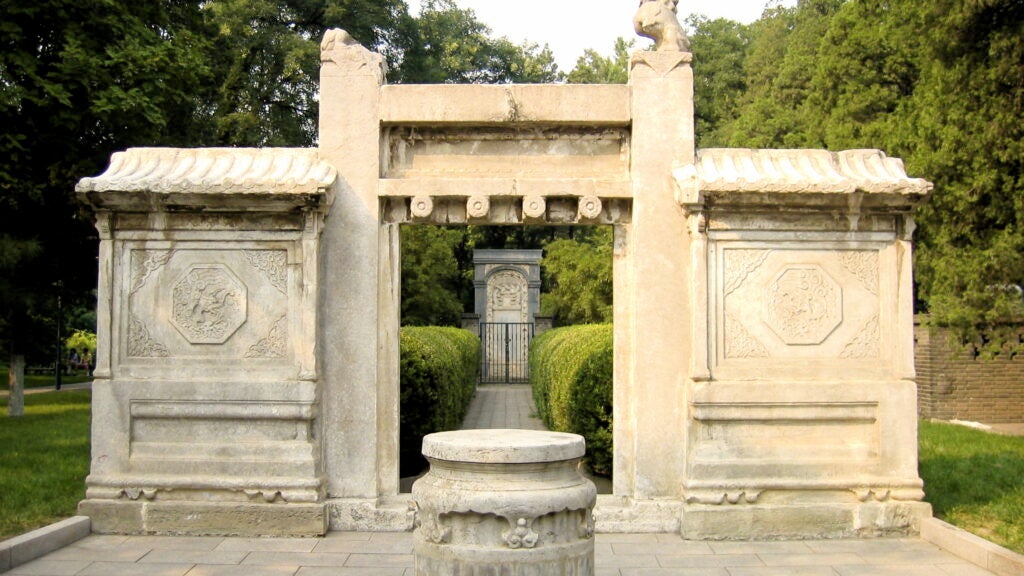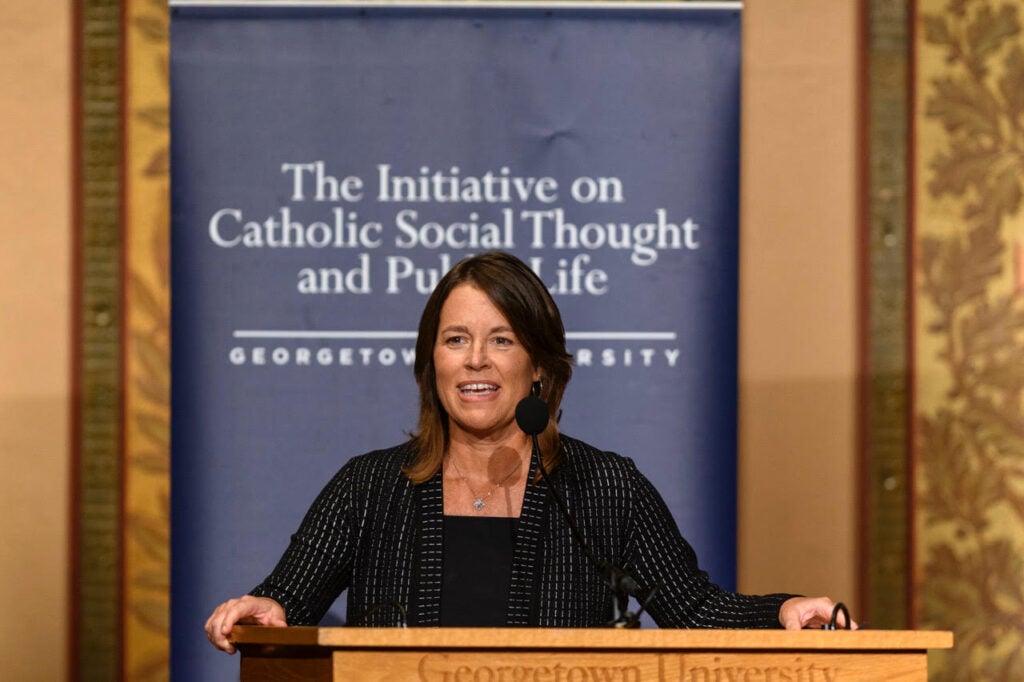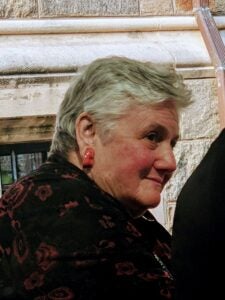Faculty

Tomb of Matteo Ricci SJ, Beijing
Current Faculty

Ryan Maher, S.J., Ph.D. (Haub Director of Catholic Studies 2024-)
Father Ryan Maher first came to Georgetown as a freshman in 1978. He earned a degree in Linguistics and then went to work as a legislative staffer in the United States Senate. He entered the Jesuits at age 26 and has spent four decades of his Jesuit life involved in Jesuit schools.
He teaches a course to Georgetown undergraduates entitled “Georgetown as Jesuit Education.” Father Maher has taught and served as an administrator in Jesuit schools in Washington, DC, Philadelphia, Scranton, and the Persian Gulf. He was a member of the founding faculty at Georgetown’s campus in Doha, Qatar. He has served as an academic dean in both Georgetown’s School of Foreign Service and Georgetown’s College of Arts and Science. He holds a doctorate in education, specializing in the nature and aims of Jesuit schools.
He currently serves as the chief administrative officer of Georgetown’s Jesuit Community.

Kim Daniels
Kim Daniels is the Senior Mentor for the Figge Family Fellows Program. She is also the director of the Initiative on Catholic Social Thought and Public Life at Georgetown University. She was appointed by Pope Francis as a Member of the Vatican Dicastery for Communication and a member of the Synod 2021-2024 Communications Commission. She has advised the U.S. bishops and other Catholic leaders and institutions on a broad range of issues where Church teachings intersect with public life. Prof. Daniels is a graduate of Princeton University and the University of Chicago Law School.

Past Faculty
Diane Apostolos-Cappadona, Ph.D., Professor emerita of Religious Art and Cultural History, Catholic Studies Program
Diane Apostolos-Cappadona, Ph.D., is a professor emerita of Religious Art and Cultural History. Long affiliated with the Catholic Studies and the Women’s and Gender Studies programs, Prof. Apostolos-Cappadona began teaching at Georgetown in 1978 and served as the director of the Catholic Studies Program from 2015 to 2021.
Prof. Apostolos-Cappadona is the author/editor of many titles, including A Guide to Christian Art (2020), Biblical Women and the Arts (2018), Religion and the Arts (2017), In Search of Mary Magdalene (2002), The Encyclopedia of Women in Religious Art (1996), The Dictionary of Christian Art (1994), Art, Creativity, and the Sacred (1995), and The Spirit and the Vision: The Influence of Christian Romanticism on the Development of 19th-century American Art (1995).
Her current projects and forthcoming titles include Visualizing Biblical Women: Favored, Fallen or Otherwise (2024); Christian Art: A Bibliographic Guide (2022); and Mary Magdalene: A Visual History (2022); and Empathos Transfigured: Rogier van der Weyden’s Transformations of the Magdalene (2023).
A beloved teacher, Prof. Apostolos-Cappadona received the Georgetown University Alumni Association Faculty Award for 2008 as well as both the Annual Award for Excellence in the Arts from The Newington-Cropsey Foundation and the Excellence in Teaching Faculty Award from Georgetown University in 2000.